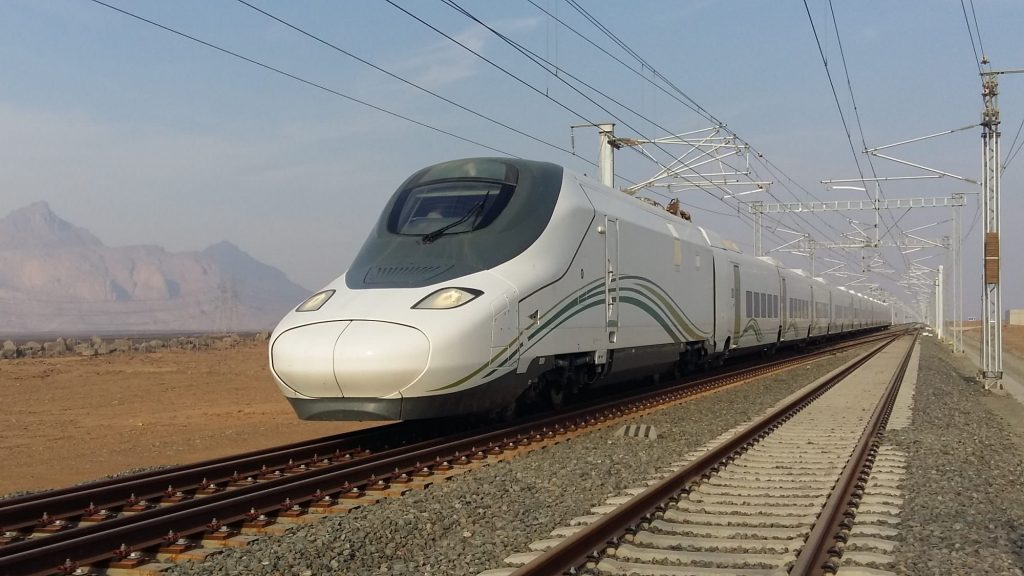The first high-speed electric train between Makkah and Madinah will be running by September, according to Saudi Transport Minister Nabil bin Mohammed Al-Amoudi.
According to Saudi English language daily Arab News, the minister said that the high-speed electric train is designed to travel at speeds of more than 300km per hour and is considered the fastest in the Middle East.
The line was originally due to open in 2012 but has been hit by delays and cost increases. Full trials were conducted in November 2017 and officials had previously indicated passenger services would begin at the start of 2018.
The railway will be able to carry 60 million passengers a year by the time it is fully operational at the beginning of 2019, Al-Amoudi said. The 450km main line will travel through King Abdullah Economic City, with a short branch line to the new King Abdulaziz International Airport (KAIA) in Jeddah.
Al Amoudi that KAIA would begin operations with limited domestic flights this month. Further domestic flights will be added in July and September, along with six new gates for international flights. KAIA will be fully operational in the first three months of 2019, with a total of 46 gates. It will be five times the size of the existing airport, with a capacity of 30 million passengers a year, the minister said.
In addition, the aviation sector planned to develop a further 12 domestic airports, Al-Amoudi said. He described KAIA as one of the most important projects of the Civil Aviation Authority, considering it as a quality shift in the services of the airport, which is five times bigger than the existing one and with a capacity to accommodate more than 30 million travellers.
He said the first phase of the airports operational plan will start in May and will include a limited number of domestic flights through six gates. Other domestic flights through five gates will be added in July. In the third phase starting in September, the designed number of domestic flights will be completed and a number of international flights will be added through six new gates, which increases the total number to 17 gates.

